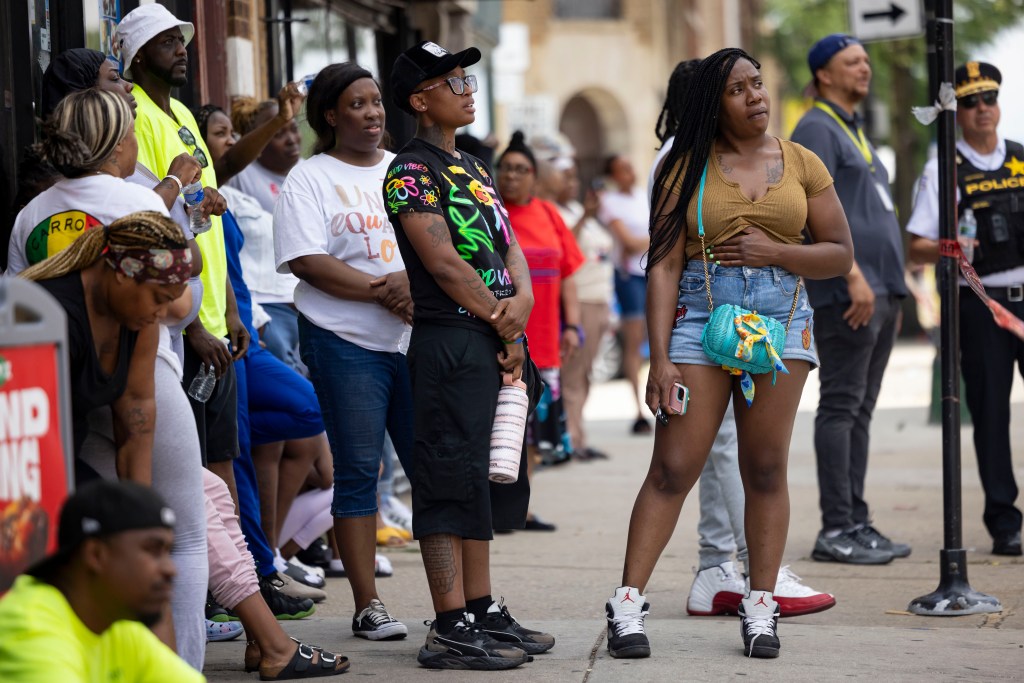For 40 years he was the voice of the feisty Voice newspapers serving Chicago’s Far West Side neighborhoods of Austin, North Lawndale and Garfield Park.
His voicemail — “This is Brad Cummings” — was bold and brassy, like a TV news anchor. He sure liked to talk. At the same time, he was always listening, always learning, always knitting people together.
But on June 26 his bold voice fell forever silent when a tragic fire in the Austin neighborhood took three innocent lives, his among them. Fires change things. For the first time ever, the Voice missed its weekly publication date. Some 36,000 copies failed to appear at the 700 drop-off points where West Side residents normally scoop them up every Wednesday. And 137,000 West Siders were stuck with the endless crime-zone coverage of Chicago’s lakefront media.
Back in 1985, two men — this voluble editor and a laid-back publisher, Isaac Jones — had vowed to flip the bloody script. And flip it they did. For four decades their rock-solid partnership showed Austin at its lively best.
In the 1980s, Austin was Chicago’s largest neighborhood, with some 125,000 residents, but it was a media desert, with no communitywide media of its own.
Enter The Austin Voice.
Funded solely by advertising, The Voice was free. And a hit from day one. A game-changer. For the first time, Austinites saw themselves getting good things done in 20 photo-packed pages. Seven days a week Cummings covered the community with his trusty camera. And Austinites found their voice in The Voice. They penned their own poems and opinion pieces. And chuckled with Spicy, Austin’s own puckish cartoonist.
But that was just the beginning. Community input made the paper real. It was reader tips that sparked the explosive “Sewer of Corrupt Cops” series that ignited the FBI’s 1996 “Austin 7” investigation. The outcome? In 1997, seven rogue Austin police officers went to prison. And the Chicago Headline Club’s prestigious Excellence in Journalism award went to The Voice.
Was this paper anti-police? Nope. Like its readers, it supported good police work. It also celebrated police gang busts with outlandish, full-page, holiday cartoon covers mocking arrested criminals. “Happy April Fools,” displayed big pink daisies with grim mug shots inside. “Happy Halloween,” showed eight new mug shots festooned in trick-or-treat gear. Austinites snapped up these covers like hotcakes. They woke people up. But would disrespected gangs retaliate?
Jones and Cummings were unphased. Austinites smiled and took The Voice to their hearts. They knew courage when they saw it.
But The Voice was just getting started. Working with a no-nonsense district commander, its 1997-2001 West Side Drug Area Shutdown program mobilized Austin residents to report public drug-dealing directly to police, who cleared hot spots and kept them clear with resident reports.
The Voice mobilized Austin with cheeky headlines like “Time to Weed the Garden.” Huge community events unified citizens and police (with good food) and swelled membership in the project’s proud Rat Patrol. This was media-based alternative policing. Driven by The Voice.
The Austin Voice’s success bred expansion. The Garfield and Lawndale Voice launched in 2005. Then came the opioid crisis, which wracked the West Side. In 2016, The Voice and Loretto Hospital helped to launch the West Side Heroin and Opioid Task Force. To date, it’s trained thousands of residents, distributed Narcan kits and led one of Chicago’s largest treatment diversion program.
The future looked bright, but now, on Aug. 22, the New Mount Pilgrim Missionary Baptist Church must memorialize a true Chicago journalism pioneer.
People ask: Will the scrappy Voice make it without Brad’s courage, creativity and 80-hour weeks?
If Cummings could answer, he’d insist — in his boldest newscaster voice — that the West Side has all the talent, young and old, to make The Voice Chicago’s most respected newspaper.
Publisher Isaac Jones’ “Keep the Voice Alive” GoFundMe looks to keep the presses rolling for 40 more years.
Steve Sewall directs Chicago Civic Media, which partnered with The Voice Newspapers on multiple projects including the West Side Drug Area Shutdown Project.
Submit a letter, of no more than 400 words, to the editor here or email letters@chicagotribune.com.
